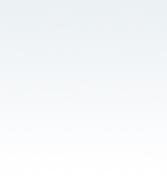
New Spaces of Reading – conference in Warsaw

Ministry of Culture and National Heritage of Poland and Polish Book Institute organized an expert conference on the policies supporting reading. The conference “New Spaces of Reading - Visegrad Conference 2017” has been planned within the Visegrad Group format, but aims at bringing together experts from different areas and regions to share successful projects and practices in this realm.
The conference aims towards discussing and sharing knowledge within the following topics:
1) forms and scope of the financial intervention of the state supporting book and reading policies,
2) role of libraries in dissemination of reading, building the competences of librarians and future-oriented approach of running the library,
3) implementing the educational, social and scientific projects in the realm of pro-reading policies,
4) good practices in activating non-readers as well as youngsters,
5) new technologies in book reading promotion,
6) book market and cultural policies - cooperation and challenges,
7) cooperation models among reading supportive institutions,
8) research on reading practices, including addressing the challenges stemming from digital world.
The conference will be held on May 16-17, 2017 in Warsaw.
Dr. László Boka, Director of Research and Academic Affairs (NSZL) will deliver a lecture entitled Inspiring to read, teaching literature, making culture attractive. Among books in a digital era? at the “New Spaces of Reading – Visegrad Conference 2017”
 Abstract of the lecture:
Abstract of the lecture:
László Boka
Inspiring to read, teaching literature, making culture attractive. Among books in a digital era?
The paper explores from multiple aspects some specific segments of the topics indicated in the title. As a university lecturer and the director of research and academic affairs of the Hungarian National Library, I would like to review the institutionalized forms and the renewing transmission codes of making and preserving canons in order to explore the possibilities of encouraging today’s youth, especially generation Z, to use and actually visit public collections, e.g. libraries, on the road of transforming into open spaces of culture, public education and information brokering. The spectacular change of reading habits invites teachers, university lecturers and also the experts at public collections to thorough reconsiderations. At the same time, it reveals the basic differences, rather of approach than generational, between “digital natives” and those seeking to adapt to the digital world.



